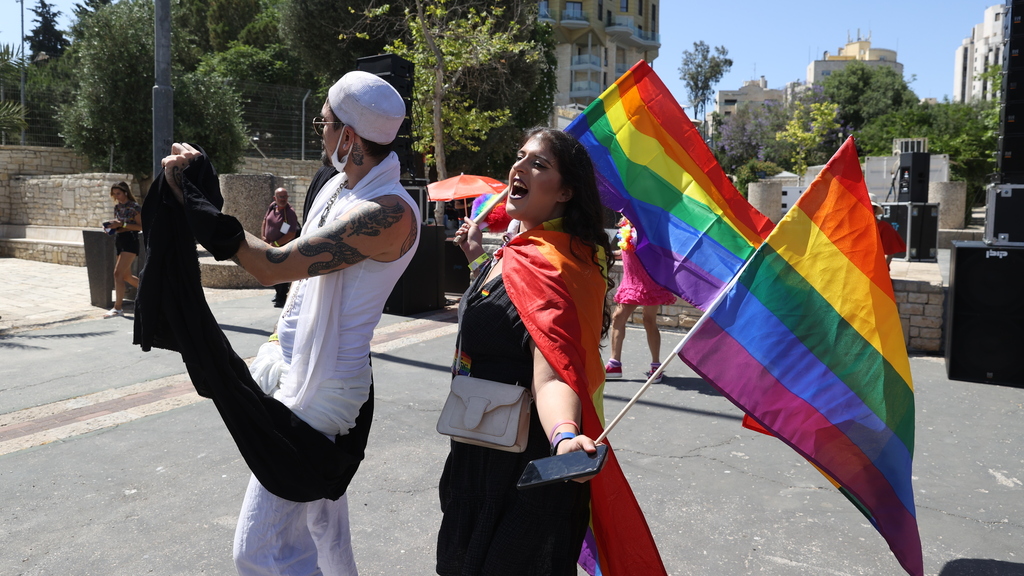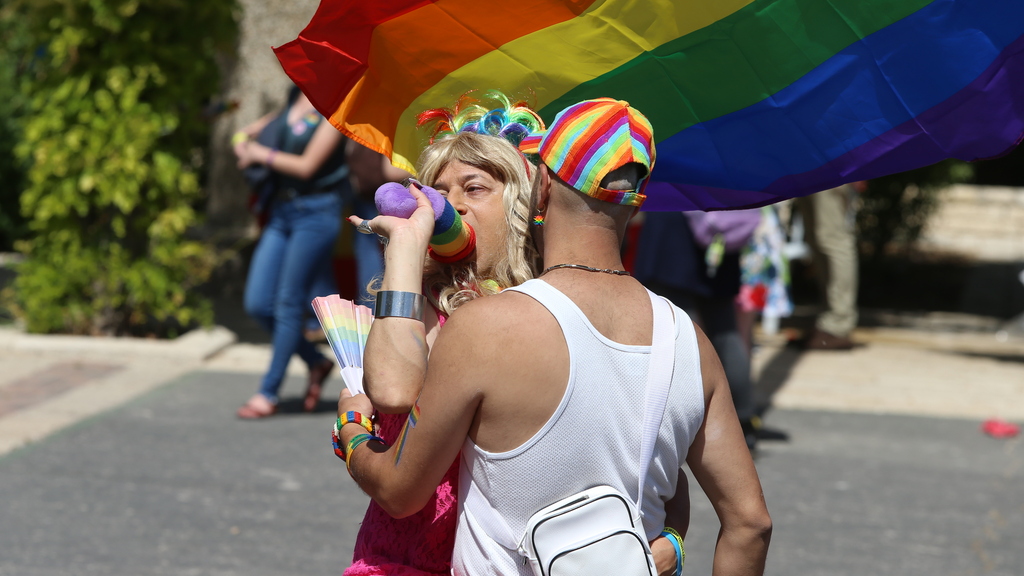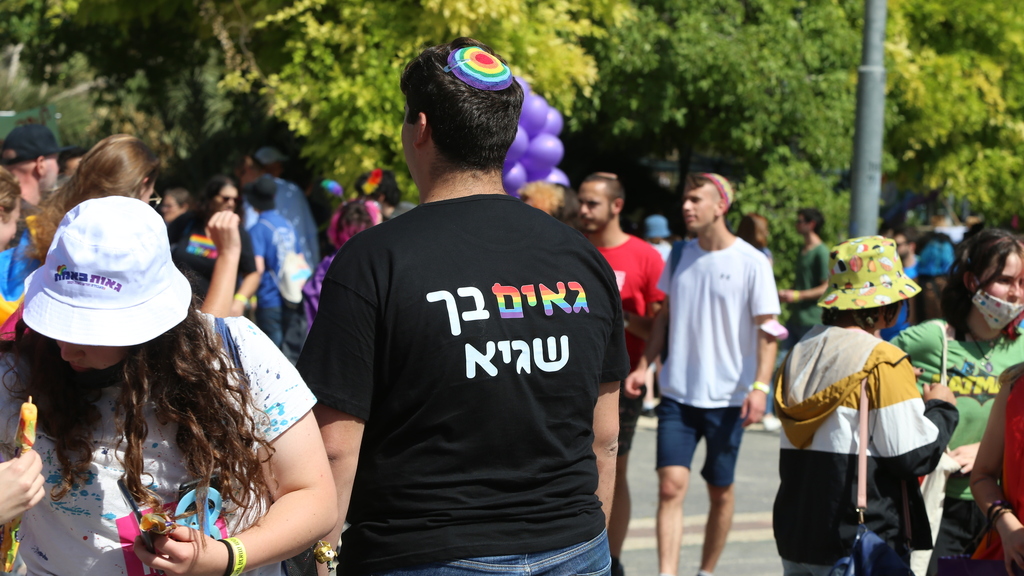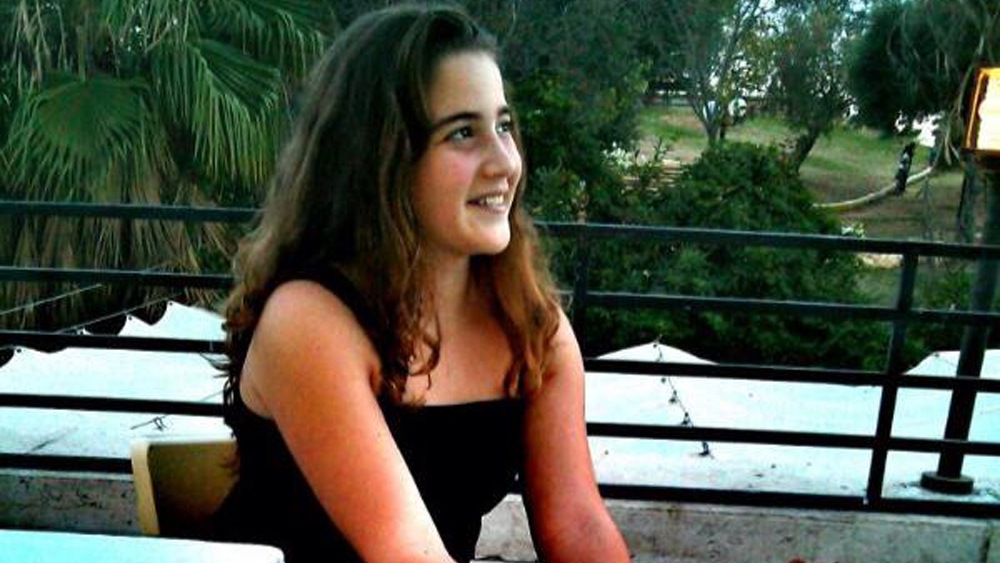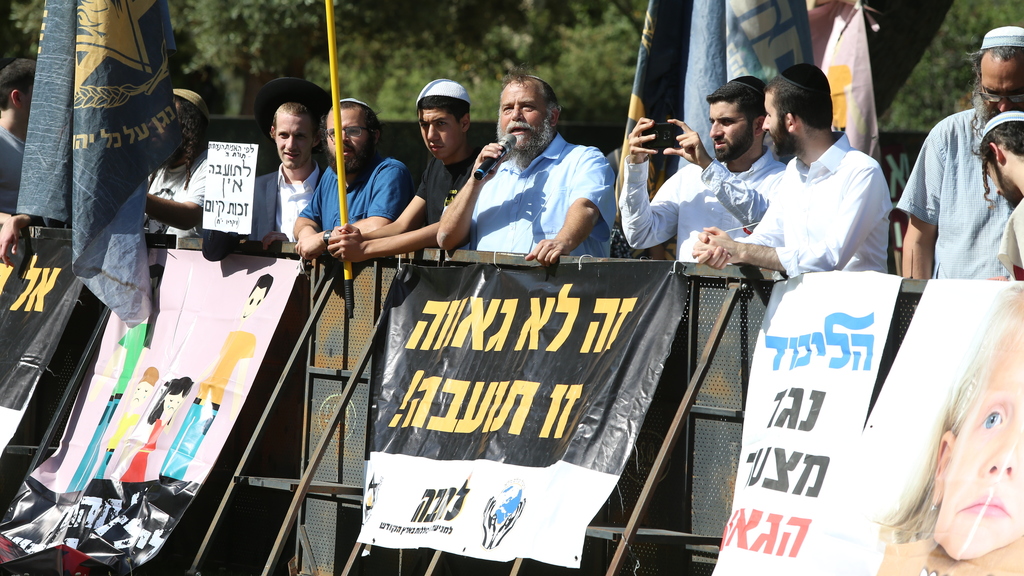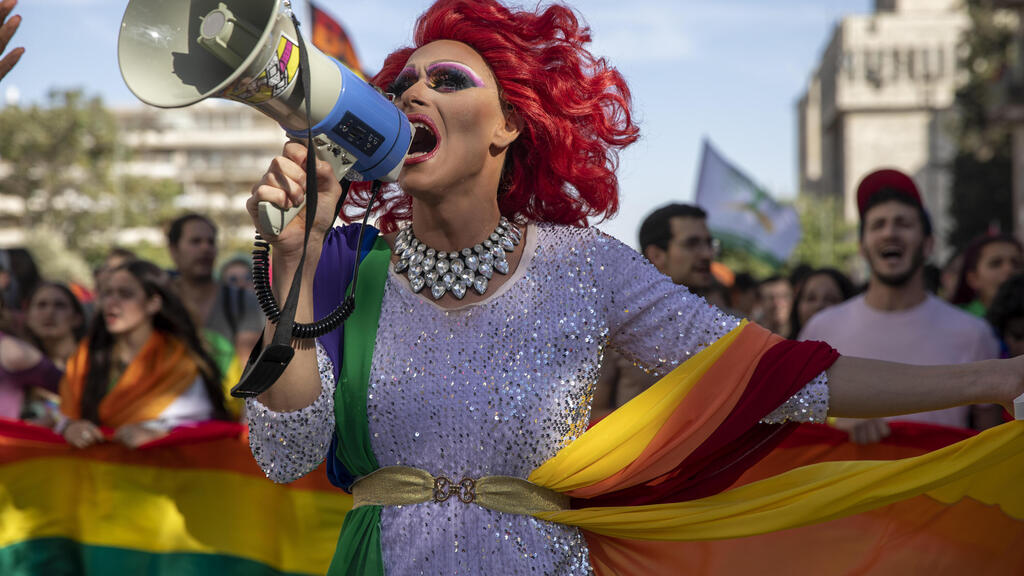Getting your Trinity Audio player ready...
Thousands took part in Jerusalem's Pride Parade Thursday under heavy security over fears of extremist attacks and a year after most of the globe's pride events were scrapped over the coronavirus pandemic.
Officials said some 8,000 people attended the annual event, which was held in celebration of the international Pride Month.
The parade - which took place in the city’s Liberty Bell Park - included people wielding rainbow flags, placards and balloons, from atop tall buildings - blocking off a number of streets as a helicopter circled overhead in the city's centre.
The event was guarded by thousands of police and Border Police officers, who were deployed along the nearby streets in preparation for a large turnout as well as disturbances on part of those opposed to the parade taking place in the capital.
About 20 activists affiliated with the far-right organization Lehava, including the organization's chief Benny Gopstein, gathered in the city’s Bloomfield Garden opposite the park, to protest the parade.
Communications Minister and Blue & White MK Eitan Ginzburg, one of Israel's most prominent LGBT politicians, attended the event.
“Most members of the new government think the LGBT community should be strengthened," he said. "I hope we can promote full equality of rights. We understand the complexity, but I hope we can find a way to help.”
Labor MK Gilad Kariv, who also attended the event, said: “[Prime Minister Benjamin Netanyahu’s] governments have not brought any real change for the LGBT community, the government of change will."
7 View gallery
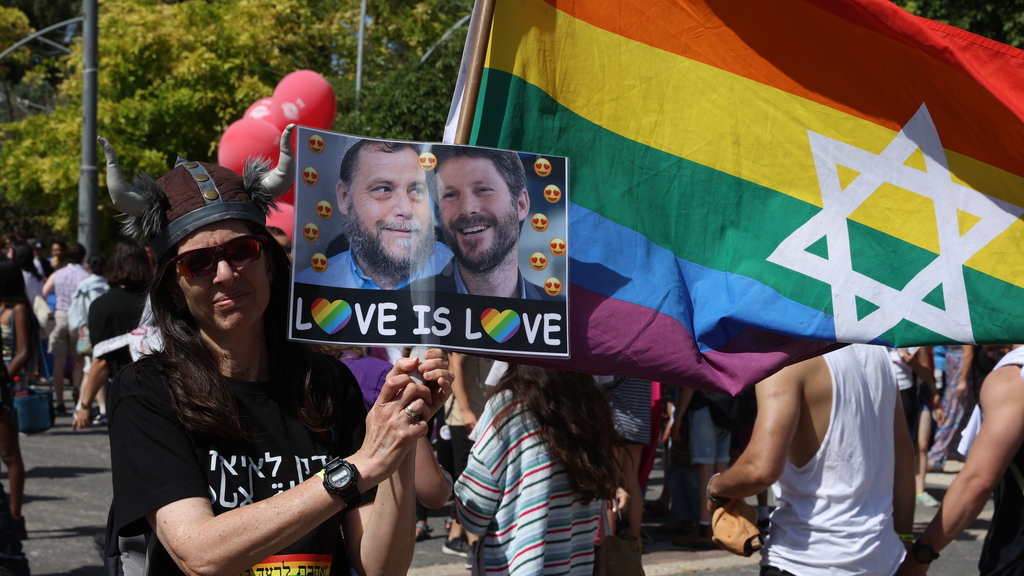

Woman holding a picture of Lehava founder Benny Gopstein and far-right MK Bezalel Smotrich, making them appear to look like lovers
(Photo: Amit Shabi)
"It is true that we have partners in the government who are less committed to this agenda, but the Labor Party, together with other partners, will use every role we have in the government and Knesset to advance the issue.”
Jerusalem has held its annual celebration of LGBTQ+ rights since 2002, often against the backdrop of protests from the ultra-Orthodox population and far-right extremists.
On July 30, 2015, teenager Shira Banki was stabbed to death during the parade by ultra-Orthodox radical Yishai Shlissel, who also wounded six others, and the annual event has been heavily protected by law enforcement since.
Israeli police said they arrested a suspect on Wednesday in Jerusalem's centre for "rampaging around and disturbing public order," with reports indicating he had levelled threats of violence related to pride events and threatened to “murder dozens of people”.
“We, family and friends, march every year and call on everyone to come and march. We trust the police and think they learned the lesson,” said Ori Neumann, the uncle of Shira Banki, during the march.
“Violence and incitement have not disappeared from the public discourse. Shira's murder came as a result of incitement. That was not a lone lunatic. After the murder, 30% of the comments on the internet praised him - these are unbelievable numbers.
"I have no problem with Lehava members gathering and demonstrating - as long as they do not call for violence and murder," Neumann said, adding the atmosphere of hate that had led to his niece’s murder is still prevalent today.
"The association that Shira's parents founded has been operating for more than five years to educate for tolerance, a different discourse in the public space and bringing hearts together. This is the right way."
Noam Yavin, the co-chair of the Jerusalem Open House for Pride and Tolerance, which funds the event each year with no subsidies from the state said the fear of another extremist attack is always there.
"Since 2015, there has not been a parade or pride event that we have not been worried about. We are working with the police to ensure the safety of the marchers, but the concern is still there."
“We walk inside an enclosed compound so that no harm can come to us from the outside. It is something that is perceptually, morally and humanly difficult to digest."
AFP contributed to this report


